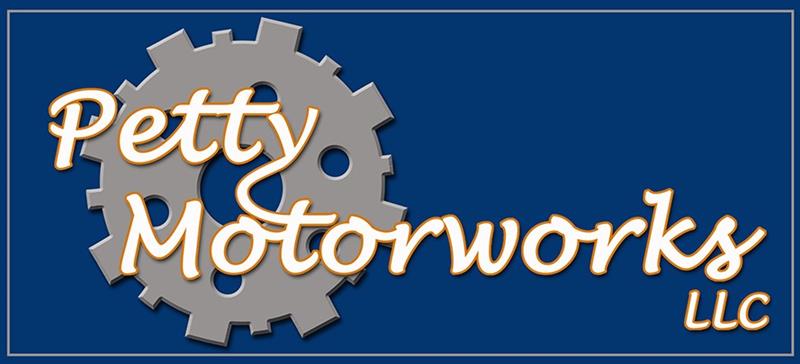Car Repair and Maintenance
The easiest and most effective way to keep your vehicle on the road is to stay on top of preventative maintenance. Think of it like the regular cleanings on your teeth, or your annual doctor visit. You take care of small issues on a regular basis to prevent larger issues from surprising you. Oil changes are the easiest and most common maintenance appointments - but there are other fluids, flushes, cleanings, and rotations that should be done on a regular basis as well. Many of these services are based on intervals designated by the manufacturer.
Key Points of Maintenance
- Oil Changes
- Engine Tune-up
- Transmission Flush
- Fuel Injection Cleaning
- Fuel Filter Replacement
- Battery Service and Charging
- Cabin Air Filter Replacement
- Tire Repair
- Tire Balancing
- Tire Rotation
- Brake System Flush
- Brake Adjustment
- Brake Replacement
- Machine Brake Rotor and Drum Surface
- Steering Parts Replacement
- Suspension Parts Replacement
- Struts and Shocks Replacement
- Electric Window Repair
- Exterior Lights Repair
- Chassis Lubrication
- Alternator Testing
- Alternator Replacement
- Computer Warning Lights Diagnosis
- Repair Performance Difficulties
- Wheel Bearings Replacement
- CV Axles and CV Boots Replacement
- Windshield Wiper Service
- Air Conditioning Repair & Service
- Heater Repair
- Radiator Replacement
- Belt and Hose Replacement
- Clutch Replacement
- Dash Lights Replacement
- Water Pump Replacement
- Timing Belt Replacement
- Engine Replacement
- Transmission Replacement
- Differential Repairs or Replacement
Maintenance
Petty Motorworks strongly recommends a regular maintenance schedule if you want to keep your car in good condition. And it's not just our shop, vehicle manufacturer's also have a recommended maintenance schedule specifically for your vehicle.
The Maintenance Schedule is written by engineers to keep their production service, and to retain value long after it leaves the assembly line. A well maintained vehicle can continue running like a dream, and even be passed from generation to generation.
If you fail to follow the maintenance schedule, you may have many small issues pile up at once, creating a repair estimate that is more expensive than what the car is worth. That is a car owner and shop's worst nightmare. It's far more cost-effective to perform preventative and regularly scheduled maintenance than deal with catastrophic failure in one or multiple components.
Cooling System
The cooling system consists of radiator, hoses, thermostat, belts, heater core, water pump, sensors, the ports that flow coolant throughout the engine, and of course coolant. Coolant keeps an automobile from overheating as it has a higher boiling point than water and lubricates the working parts. It contains chemicals that resist rust and corrosion to metals, some coolants have extended life expectancy. This varies from manufacturer to manufacturer.
What happens when the coolant is old? The debris and buildup and rust begin. Long-term effects usually persist with a severe case. Old coolant can even cause sensors valuable to the car's computer operation to malfunction. We have removed radiators that were broken or leaking and have been amazed at the weight difference between the new, clean replacement and the clogged old one with debris. This restricted flow also causes the engine to operate at an elevated temperature which is not healthy for the engine. Water pumps have been removed and upon inspection, the blade that pumps coolant is rusted off and there is no flow through the system.
Thermostats have been removed that had broken or stopped opening, and were responsible for broken radiators, water pump leaks, and blowing hoses from restricting flows. Heater cores are situated in the dash of the car, and in most vehicles, the coolant flows through at a constant rate. Rust will deteriorate the thin metal or aluminum surface and will sprout a leaking the floorboard or fog up the window with a stinky, oily mess. There are metal circular caps called expansion plugs or freeze plugs that can also rust and leak. Depending on the location, some require removal of transmission or major engine parts to access - racking up your labor charges.
Head gaskets, that separate the upper part of the engine called the cylinder head and the engine block have deteriorated due to coolant systems being neglected. This deterioration can be fatal to your engine.
Our coolant flush is designed to flush the entire cooling system in your vehicle. This flushes out floating particles and trash that harm a cooling system and replenishes the system with new coolant. We also inspect the cooling system to spot potential problems that are creeping up.
Fuel System
The fuel system consists of a fuel pump, filter, fuel injectors, carburetor, and electrical devices that power the fuel pump on modern vehicles. The quality of the fuel has a major impact on how clean this system stays, as does the number of detergents added by the gasoline refiner. There are byproducts of gasoline that develop inside the engine that can cause problems. Carbon forms in the cylinders of the engine and into the valves. The carbon changes the structure of this area, it soaks up gasoline like a sponge and raises the temperature inside the cylinder, which affects performance. Buildup inside the fuel injectors can slowly destroy performance by restricting flows.
VEHICLE RUNNING POORLY? WE’LL FIX IT
We aren't intimidated by tough repairs - in fact, we specialize in them.
